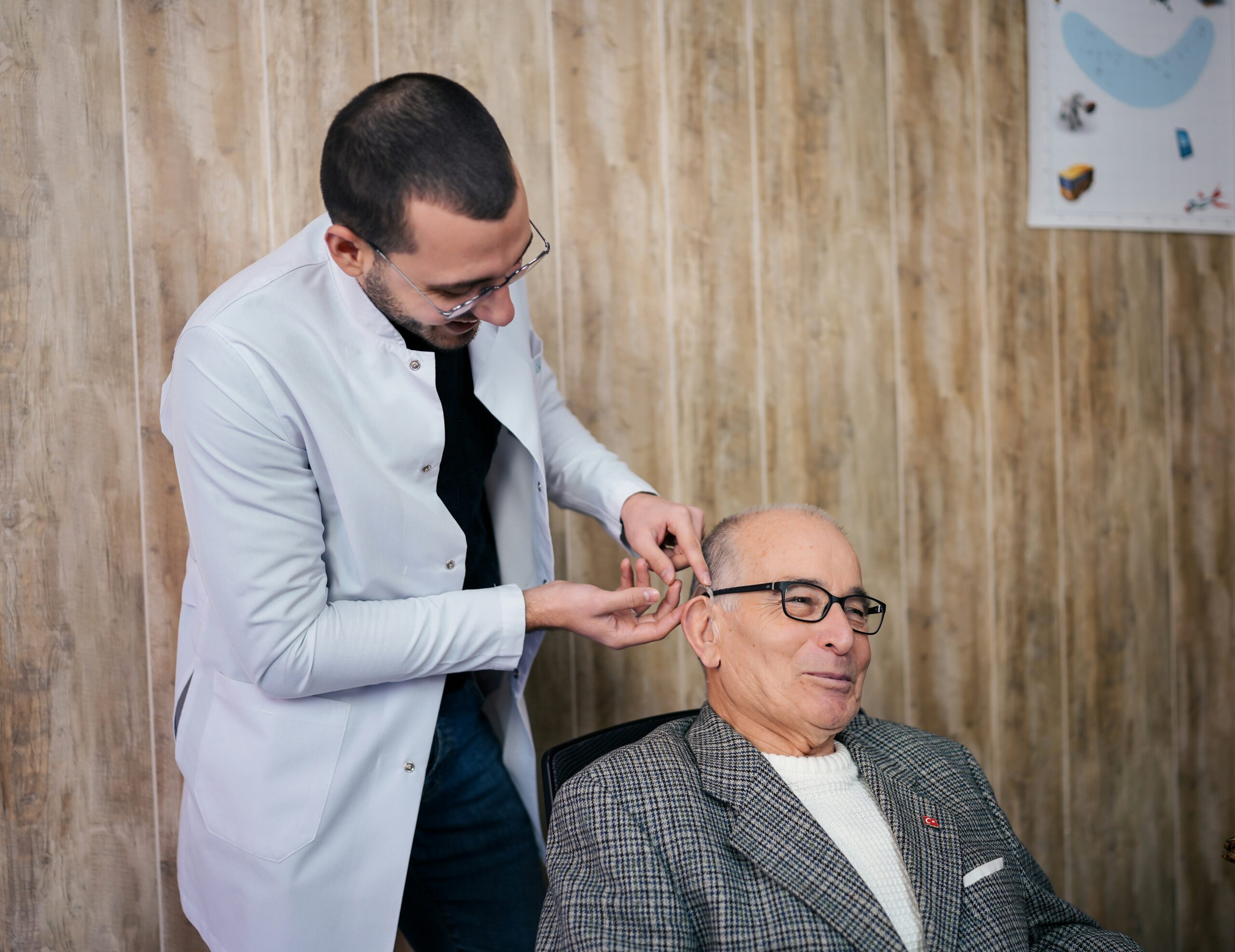How Hearing Healthcare Is Evolving: Trends and Advancements

Hearing healthcare is undergoing significant advancements, reshaping the way people approach hearing loss and auditory health. Over the past decade, technology has undergone substantial improvements, providing individuals with more personalized and practical solutions. From the rise of digital hearing aids to the development of innovative therapies, the field of hearing healthcare is undergoing an unprecedented pace of evolution. This article explores the key trends and advancements that are shaping the future of hearing healthcare.
The Rise of Digital Hearing Aids
One of the most significant developments in hearing healthcare is the evolution of hearing aids. Digital hearing aids have replaced their analog counterparts, offering enhanced sound quality, increased comfort, and improved overall performance. These new-generation devices can filter out background noise, adapt to various environments, and even be controlled remotely through smartphones. As a result, users can enjoy more natural sound quality, which improves communication and overall quality of life.
AI and Machine Learning in Hearing Devices
Another major trend in hearing healthcare is the integration of artificial intelligence (AI) and machine learning into hearing aids and other devices. AI can now help hearing aids automatically adjust to various sound environments without requiring manual intervention. This technology analyzes the user’s listening environment and customizes the audio experience for optimal clarity and comfort. As AI technology continues to evolve, hearing devices will become more intuitive, providing seamless user experiences.
Telehealth and Remote Monitoring
Telehealth has gained momentum across the healthcare sector, and hearing healthcare is no exception. Remote monitoring services enable audiologists to track the performance of hearing aids in real-time real-time. Patients can schedule virtual appointments, receive device adjustments, and discuss concerns without needing to visit the clinic in person. This trend has not only improved accessibility to care but also made it more convenient and cost-effective for patients to manage their hearing health.
The Development of Cochlear Implants
Cochlear implants have long been a viable option for those with severe hearing loss. However, the technology behind these implants continues to improve. Modern cochlear implants now offer more precise sound processing, better connectivity with external devices, and shorter recovery times. Additionally, advancements in electrode array technology enable more accurate mapping of the auditory nerve, thereby enhancing the overall hearing experience.
Bone-Conduction Hearing Devices
Bone-conduction hearing devices are gaining popularity as a non-invasive solution for those with conductive hearing loss. These devices work by bypassing the eardrum and transmitting sound vibrations directly to the cochlea through the bones of the skull. This technology has been particularly beneficial for individuals with conditions affecting the outer or middle ear. With advancements in miniaturization, bone-conduction devices have become more comfortable, discreet, and practical, offering users a new alternative to traditional hearing aids.
Personalized Hearing Solutions
As hearing healthcare becomes more sophisticated, personalized treatment plans are emerging as a key trend. Audiologists now take a more holistic approach, considering not just the degree of hearing loss but also the patient’s lifestyle, preferences, and specific auditory needs. The use of real-time data and patient feedback enables healthcare providers to tailor solutions to each individual, resulting in improved outcomes and higher satisfaction.
Hearing Protection and Prevention
Preventive care is becoming an increasingly important focus in the field of hearing healthcare. Noise-induced hearing loss is one of the most common causes of permanent hearing damage, particularly in industrial and recreational environments. As a result, there is a growing emphasis on the importance of hearing protection. Custom earplugs and noise-canceling headphones are now more readily available, and public awareness campaigns are pushing the importance of safe listening habits. By preventing hearing loss before it happens, hearing healthcare providers can help reduce the overall burden of hearing impairment.
The Role of Genetic Research
Genetic research plays a crucial role in advancing hearing healthcare as scientists continue to uncover the genetic factors that contribute to hearing loss. Researchers are investigating gene therapies and potential treatments that could prevent or even reverse certain types of hereditary hearing loss. Though still in the experimental stages, these developments could revolutionize the way we approach hearing loss in the future. By targeting the root causes of hearing impairment, genetic advancements have the potential to offer more permanent solutions.
Integration of Hearing Health with Overall Wellness
In recent years, there has been a growing recognition of the connection between hearing health and overall wellness. Studies have shown that untreated hearing loss is linked to cognitive decline, social isolation, and even depression. As a result, hearing healthcare professionals are increasingly taking a more integrated approach to patient care. By addressing hearing health as part of overall wellness, audiologists can help patients maintain a higher quality of life, particularly as they age.
The future of hearing healthcare is promising, marked by rapid advancements in technology, personalized care, and preventive measures. As digital hearing aids become increasingly innovative and integrated into our daily lives, individuals with hearing loss will have access to more efficient, comfortable, and personalized solutions. Telehealth, AI, and genetic research are all contributing to the evolution of hearing healthcare, offering promise for improved outcomes in the years to come. By Embracing these advancements, hearing healthcare professionals can continue to make a significant impact on the lives of individuals with hearing loss, ensuring they receive the highest quality of care and support.